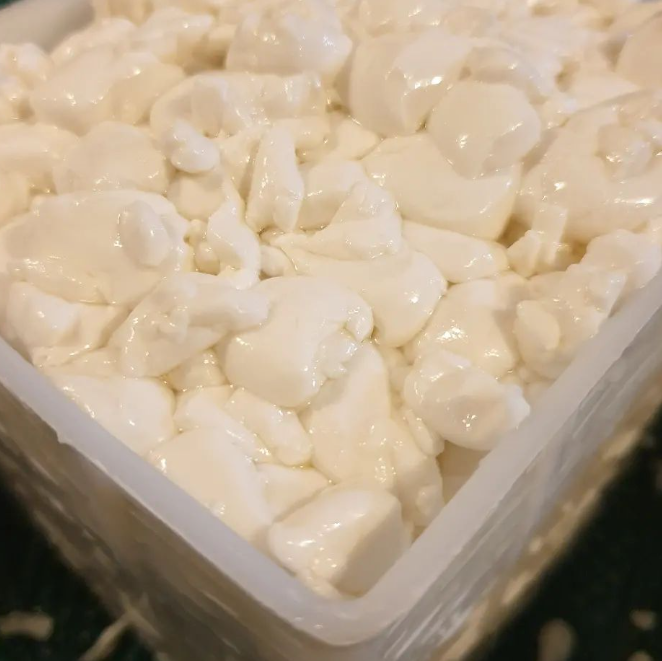Halloumi, originally from the island of Cyprus, is traditionally made from sheep or goatsmilk. It was the first cheese I made, I thought it would be the safest as it is poached and cooked before eating.
It is easy and doesn't need any cultures.

Heat 4 litres of fresh milk to 30° C (you can add 1/4 tsp calcium chloride for a firmer curd)
Add 3ml of rennet mixed in 50ml water to the milk stirring slowly for one minute in a gentle up and down motion.

Allow to rest for 30 to 45 minutes until you can make a clean break.

Cut the curd into 1 centimetre cubes and rest for 10 minutes.
Slowly increase the temperature to 40° C stirring every few minutes to ensure curds don't clump together. It should take 30-45 minutes. Maintain at 40° for an additional 15 minutes while stirring.

Ladle the shrunken, firmer curds into a basket, or just a colander lined with cheesecloth, and save all the whey.

Let curd drain. You can press your curd if you want a quicker, firmer result, I just use a tin of beans for weight and drain for longer.

Put all the drained whey back into the main pot and prepare to pach your halloumi

Add 4 tbsps salt to whey and heat it to 80 - 90 degrees C.

The cooked whey protein, the ricotta, will start to float around 80C.

Skim off the "ricotta" and drain in basket.

Cut your cheese into slabs.Place your slabs of cheese into the hot whey and poach until they float, about 15 minutes.


Put slabs into draining boxes and allow to cool.

Add cooled salted whey, eat after a few days... Best served lightly fried.

#cheese #cheesemaking
#homesteadlife
#homemade #homesteading #farmwifey #farmlife #goatsmilk #firstgenfarmer #selfsufficient

